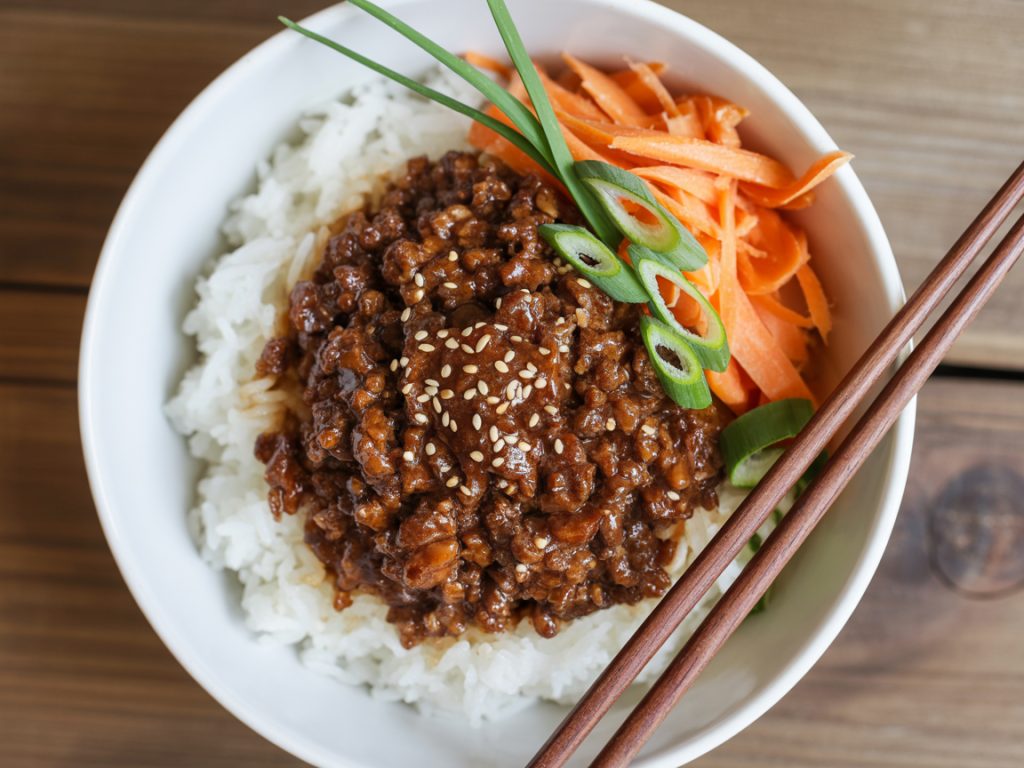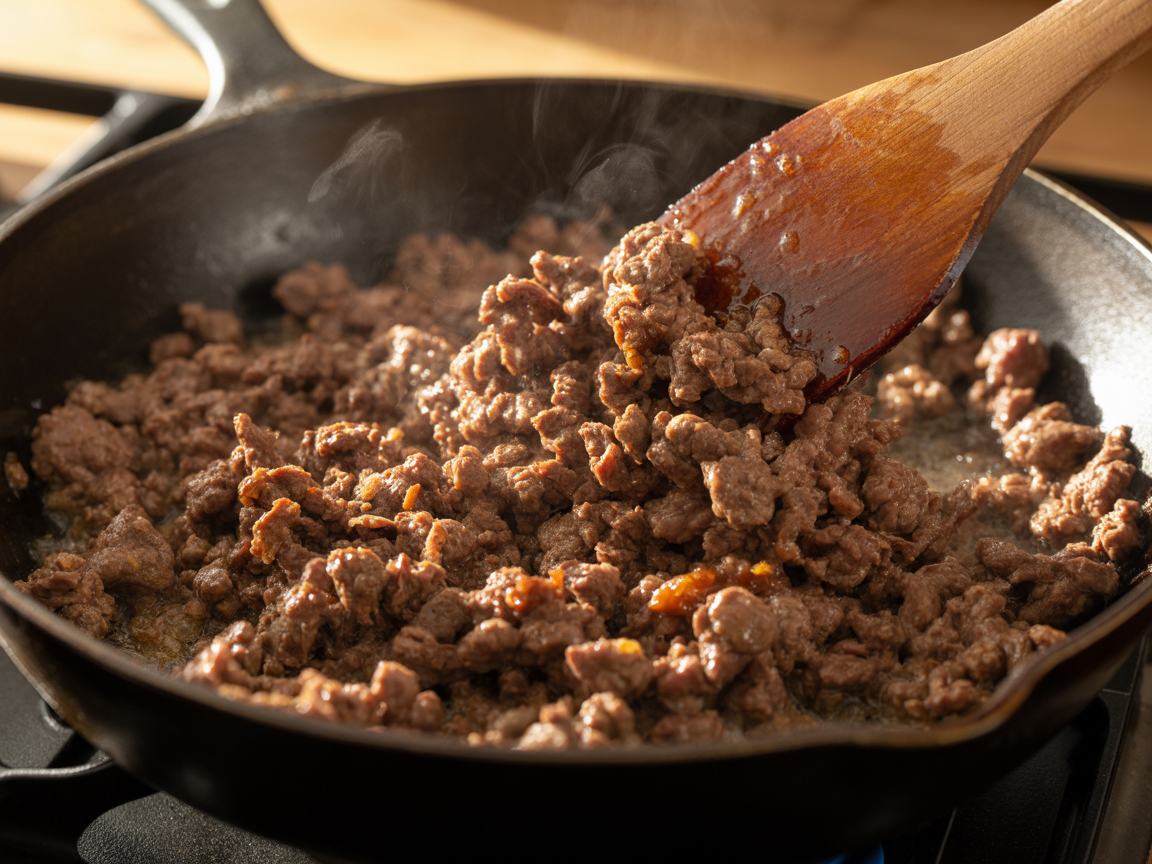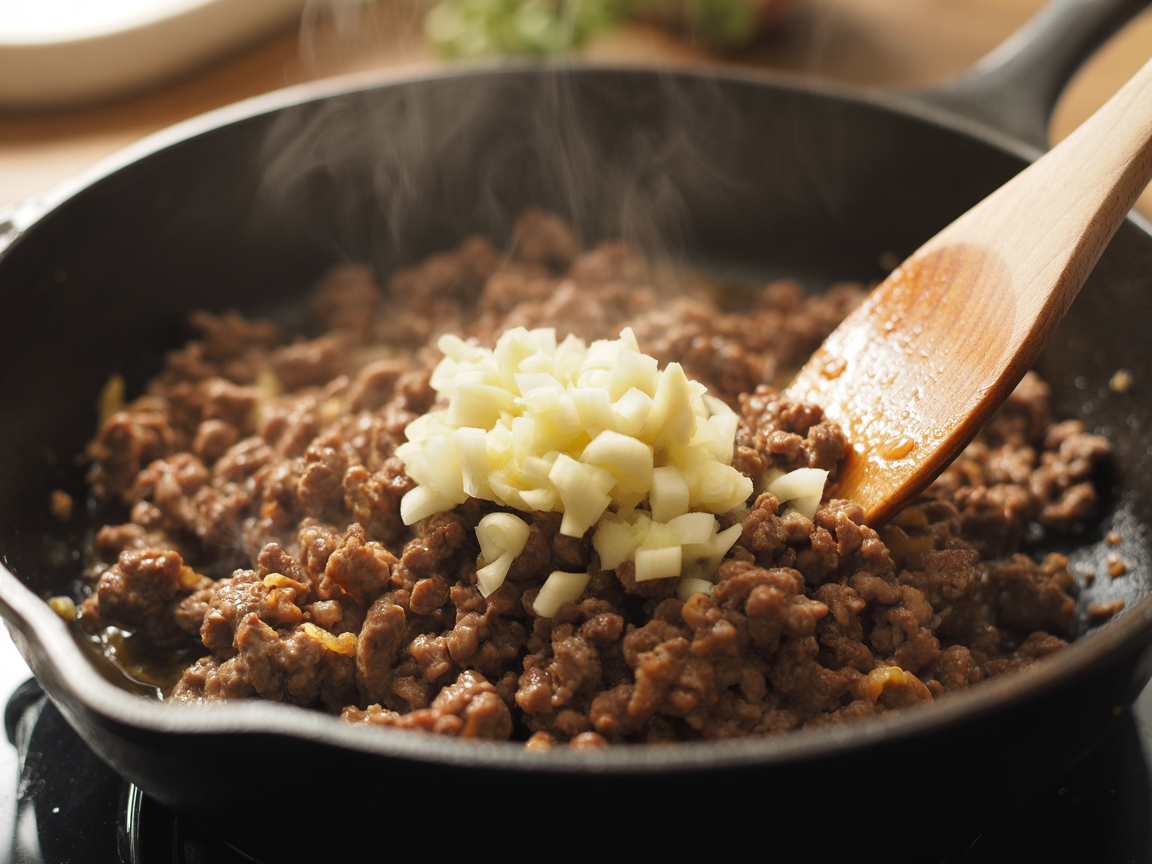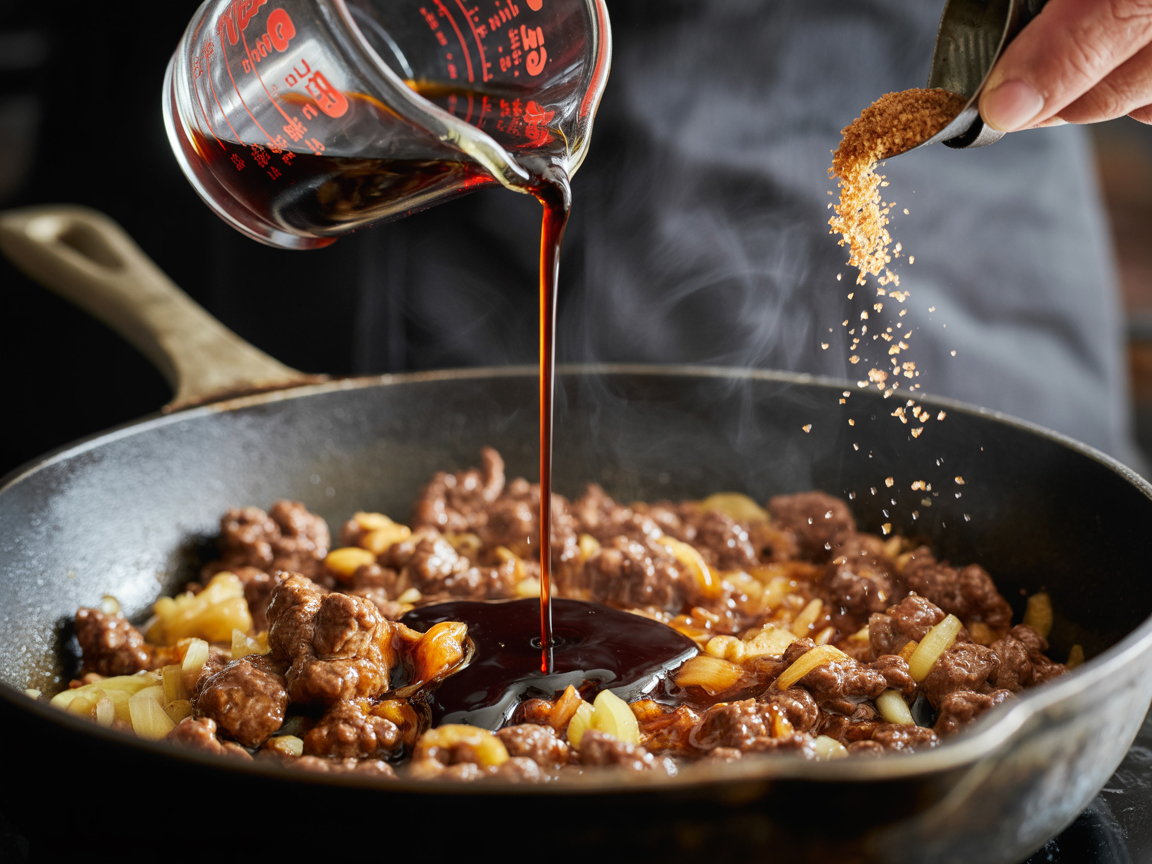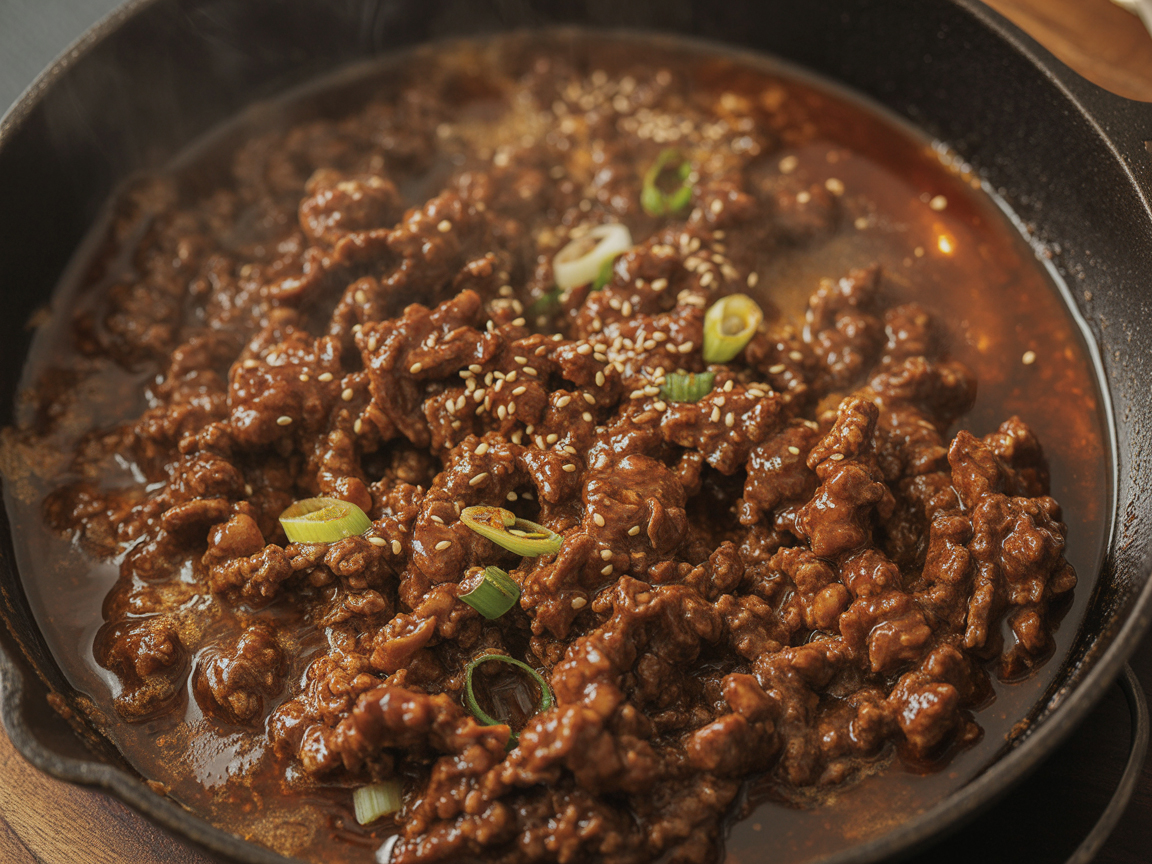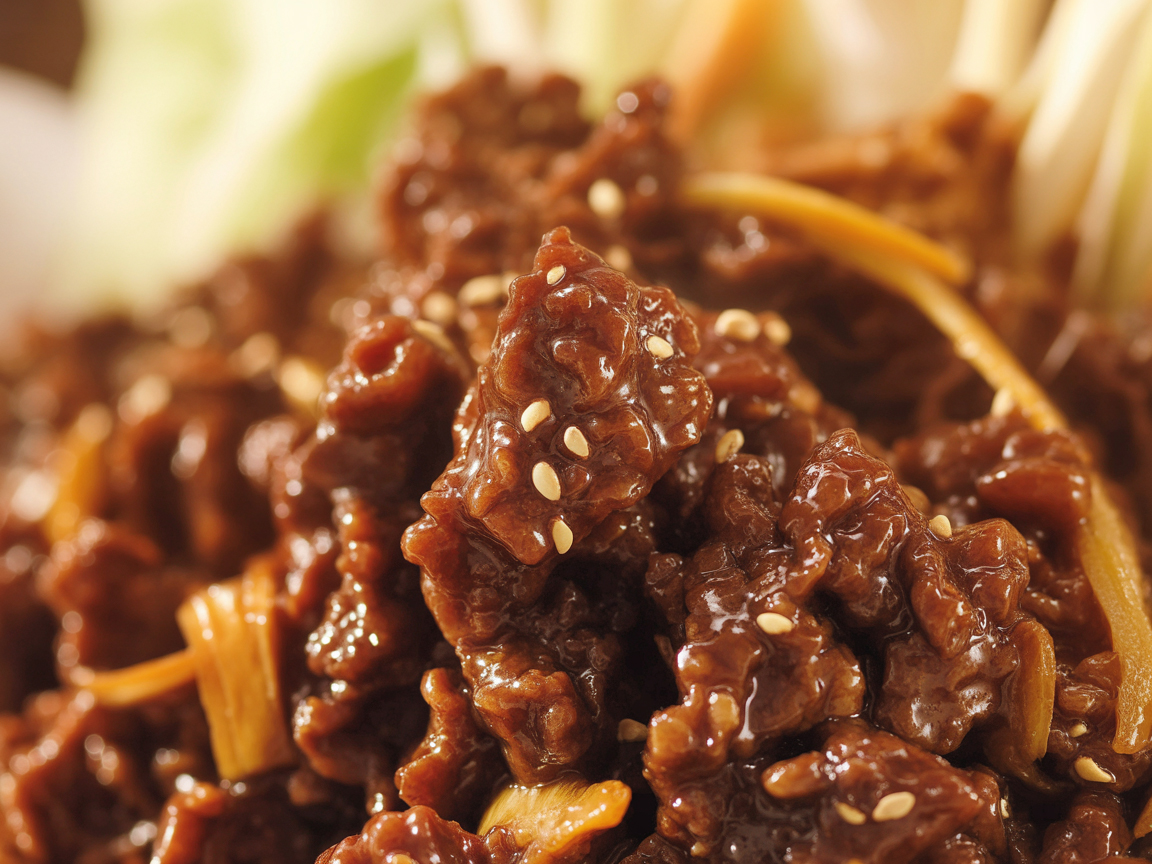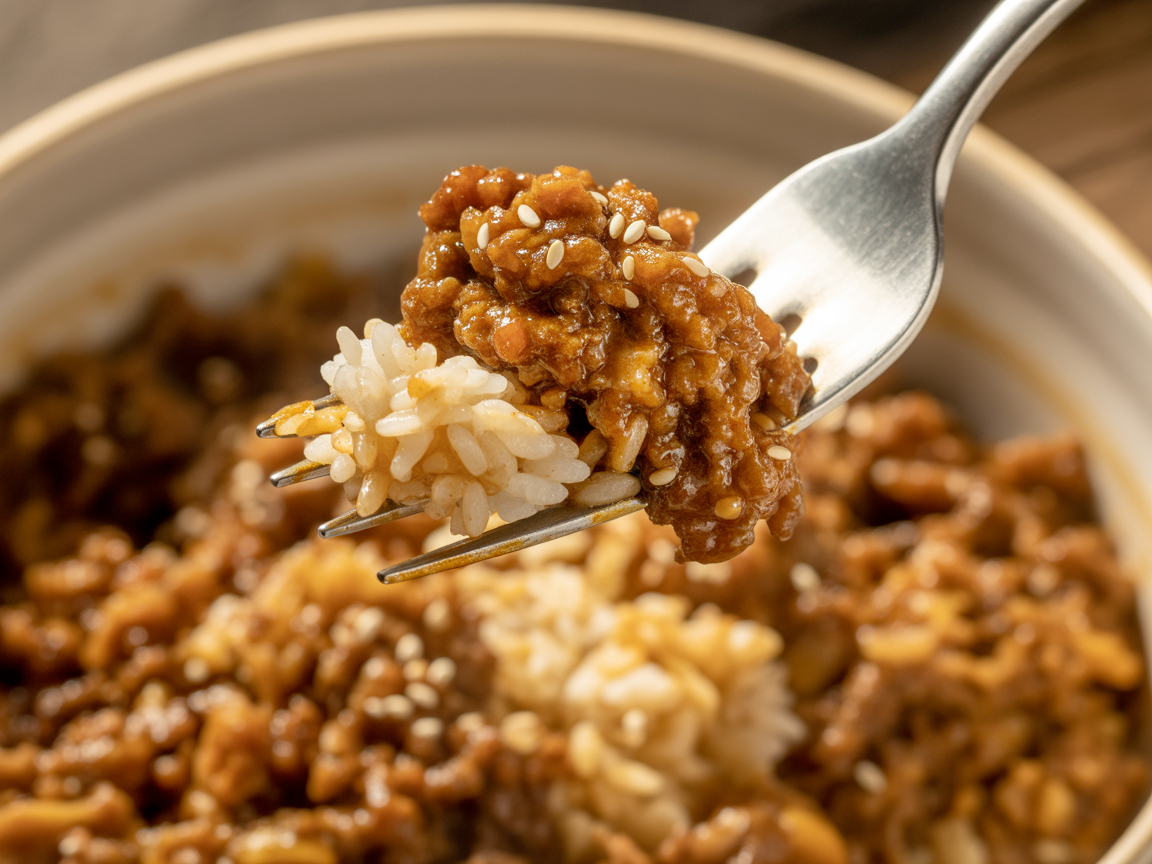Let me tell you about the recipe that’s saved my weeknight dinners more times than I can count. These Korean Ground Beef and Rice Bowls are the definition of quick, easy, and ridiculously delicious. We’re talking about a meal that goes from fridge to table in 15 minutes flat, tastes like you ordered takeout from your favorite Korean spot, and costs a fraction of the price.
The star here is the ground beef—cooked until perfectly browned and coated in a sweet, savory, garlicky sauce that’s so good you’ll want to lick the bowl clean. Served over fluffy white rice with some crisp veggies and a sprinkle of sesame seeds, this dish hits every flavor note you’re craving. It’s comfort food that doesn’t leave you feeling heavy or guilty.
I stumbled onto this recipe during one of those chaotic weeks when cooking felt impossible but I was so tired of ordering delivery. I had ground beef in the fridge, rice in the pantry, and a handful of basic Asian pantry staples. Twenty minutes later, my family was fighting over seconds. That’s when I knew this recipe was a keeper.
Whether you’re a busy parent trying to get dinner on the table fast, a college student on a budget, or just someone who wants maximum flavor with minimal effort, these Korean ground beef bowls are about to become your new obsession. Trust me on this one.
Why These Korean Ground Beef Bowls Are Absolutely Addictive
I’m not exaggerating when I say this recipe has changed my weeknight dinner game. Here’s why these bowls are so incredibly good and why you’ll be making them on repeat.
Lightning Fast
Fifteen minutes. That’s literally all the time you need from start to finish. The ground beef cooks quickly, the sauce comes together in the same pan, and if you’re smart and use leftover rice or a rice cooker, you’re golden.
There’s no marinating overnight, no complicated techniques, no watching a pot for an hour. Just quick, straightforward cooking that gets dinner on the table faster than waiting for delivery. On those nights when you’re running on empty and everyone’s hangry, this recipe is your superhero.
Budget-Friendly Brilliance
Ground beef is one of the most affordable proteins you can buy, and this recipe stretches one pound to feed four people easily. Add in some rice, a few pantry staples you probably already have, and maybe some veggies, and you’re looking at a complete meal for under fifteen bucks.
Compare that to ordering Korean takeout for the family, and you’re saving serious money. IMO, recipes that taste this good while being this cheap deserve a permanent spot in your rotation.
Sweet, Savory, and Perfectly Balanced
This sauce is where the magic happens. The combination of soy sauce, brown sugar, garlic, ginger, and sesame oil creates this incredible balance of sweet and savory that’s totally addictive.
It’s got that classic Korean flavor profile—slightly sweet, deeply savory, with a hint of heat if you add gochugaru or red pepper flakes. Every bite is packed with flavor, and somehow it never gets boring. The rice soaks up all that delicious sauce, the beef is perfectly seasoned, and it all just works together beautifully.
Meal Prep Champion
These bowls are absolute gold for meal prep. Make a big batch on Sunday, portion it into containers, and you’ve got ready-made lunches or quick dinners for the entire week. The flavors actually get better after sitting in the fridge for a day as everything melds together.
It reheats beautifully in the microwave, and you can customize each bowl differently with various toppings to keep things interesting. Plus, the beef mixture freezes perfectly, so you can make a double batch and stash half for those future emergency dinner situations.
Your Simple Ingredient Checklist
One of my favorite things about this recipe is how straightforward the ingredient list is. No hunting down obscure ingredients at specialty stores—just pantry staples and ground beef. Let’s break it down.
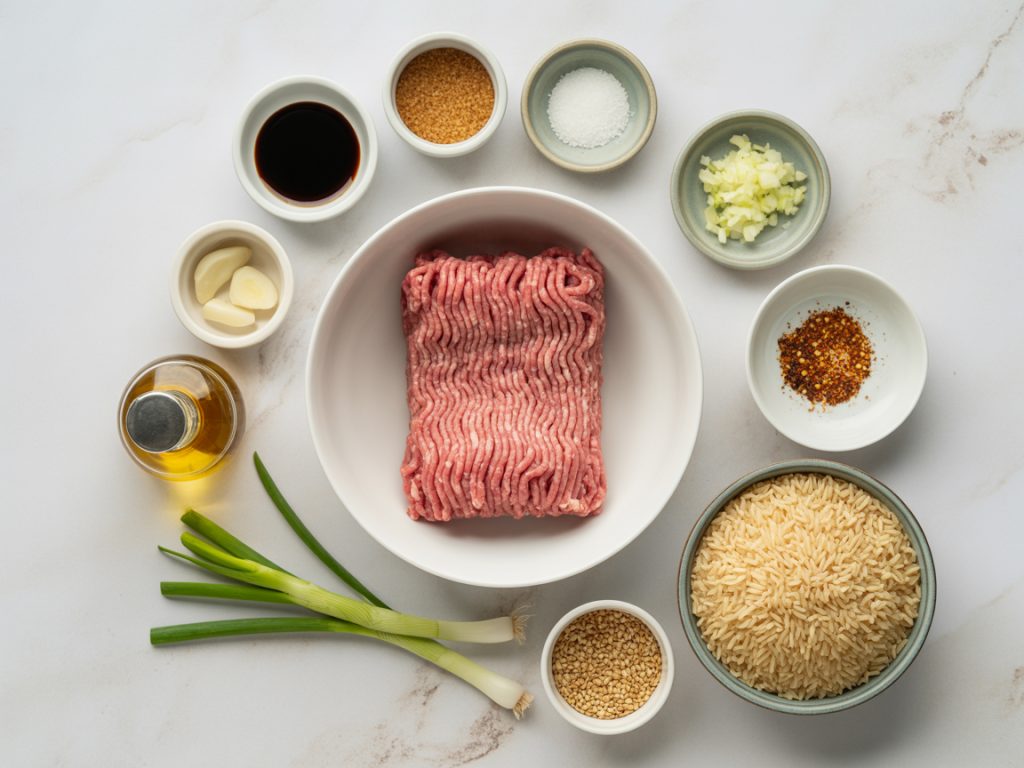
The Ingredient Lineup:
For the Beef:
- 1 pound ground beef (80/20 or 85/15 works great)
- 3 cloves garlic (minced)
- 1 teaspoon fresh ginger (grated or minced)
- ¼ cup soy sauce (or tamari for gluten-free)
- 2 tablespoons brown sugar
- 1 tablespoon sesame oil
- ½ teaspoon red pepper flakes or gochugaru (optional, for heat)
- 2 green onions (sliced, white and green parts separated)
For Serving:
- 3 cups cooked white rice (or brown rice, cauliflower rice)
- 1 tablespoon sesame seeds
- Extra sliced green onions for garnish
- Optional: shredded carrots, cucumber slices, kimchi, fried egg, sriracha
Ingredient Tips and Substitutions:
Ground Beef: I typically use 80/20 or 85/15 ground beef because a little fat adds flavor and keeps the meat juicy. If you want to go leaner, 90/10 works but might be slightly drier. Drain excess fat if needed, but honestly, a tablespoon or two left in the pan adds richness to the sauce.
You can also swap ground beef for ground turkey, ground chicken, or even ground pork—they all work beautifully with this sauce. Just adjust cooking time slightly since poultry cooks faster.
Soy Sauce: This is a key flavor component, so use regular soy sauce or low-sodium if you’re watching your salt intake. For gluten-free folks, tamari or coconut aminos work perfectly—just note that coconut aminos are slightly sweeter and less salty, so you might want to adjust the sugar. Don’t use thick soy sauce or teriyaki sauce as substitutes; the consistency and flavor are different.
Brown Sugar: This adds that signature sweet element that balances the salty soy sauce. You can substitute with white sugar, honey, or maple syrup in a pinch. Each will give a slightly different flavor profile, but they all work. If you’re doing keto or watching sugar, try a sugar substitute like erythritol or monk fruit sweetener.
Garlic and Ginger: Fresh is best here. The aromatic punch from fresh garlic and ginger is what makes this dish sing. Jarred minced garlic works in a pinch, but fresh ginger is harder to substitute—ground ginger powder won’t give you the same bright, zesty flavor. If you absolutely must, use ¼ teaspoon ground ginger, but fresh is worth the tiny bit of extra effort.
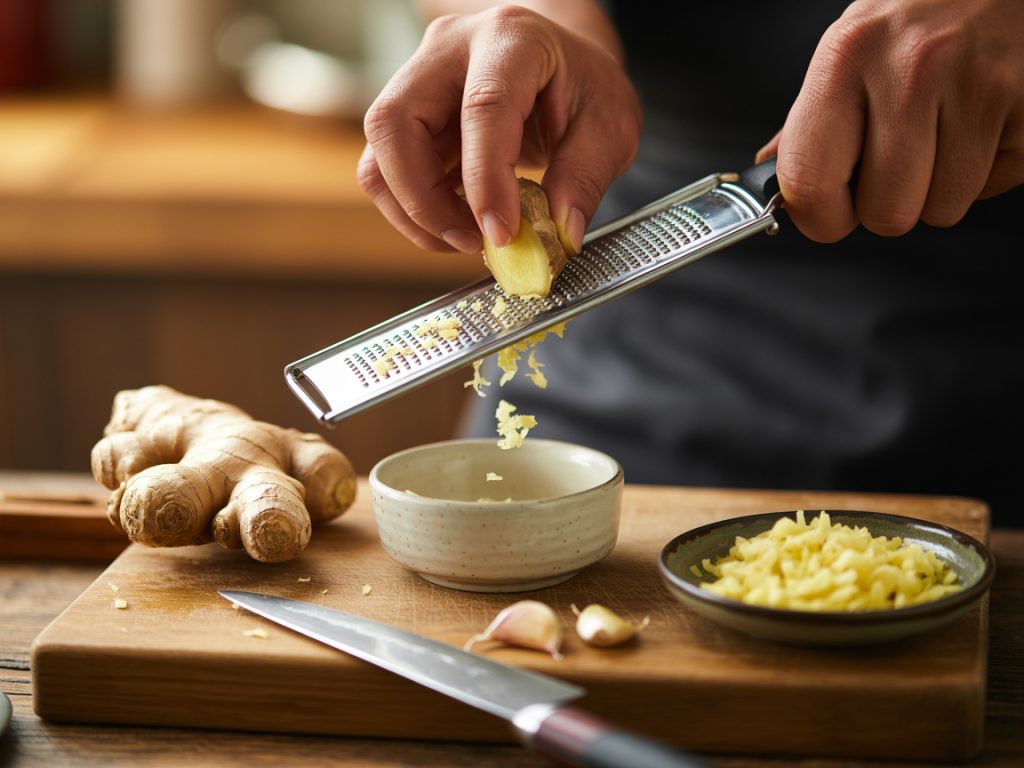
Sesame Oil: This is non-negotiable if you want authentic Korean flavor. Toasted sesame oil has this nutty, rich aroma that’s impossible to replicate. A little goes a long way, so don’t skip it. You can find it in the Asian section of most grocery stores, and one bottle lasts forever.
Red Pepper Flakes or Gochugaru: Totally optional depending on your heat tolerance. Gochugaru is Korean red pepper flakes—they’re slightly sweet and smoky with medium heat. Regular red pepper flakes work fine and are probably already in your spice cabinet. Start with less if you’re unsure; you can always add more heat with sriracha when serving.
Rice: Use whatever rice you love. White jasmine or long-grain rice is traditional and cooks quickly. Brown rice adds fiber and nutrients but takes longer to cook. Leftover rice from Chinese takeout? Perfect. For low-carb folks, cauliflower rice is an excellent substitute that keeps the carbs down while still soaking up that delicious sauce.
Step-by-Step Cooking Instructions
Alright, let’s make some magic happen. This recipe is so simple it’s almost embarrassing, but the results are anything but basic. Follow these steps and you’ll have restaurant-quality Korean beef bowls in no time.
Part 1: Cook the Rice and Prep Ingredients
Start Your Rice: If you’re making fresh rice, get that going first since it takes the longest. Follow your package directions or rice cooker instructions. For a shortcut, use leftover rice or those 90-second microwave rice packets—no shame in that game. You want about 3 cups of cooked rice total, which usually means starting with 1 cup of uncooked rice.
Prep Your Ingredients: While the rice cooks, mince your garlic and ginger. Slice your green onions, keeping the white and green parts separate—the whites go in during cooking for flavor, the greens are for garnish. Measure out your soy sauce, brown sugar, and sesame oil so everything’s ready to go. This is a fast-cooking recipe, so having everything prepped before you start makes the actual cooking process smooth and stress-free.
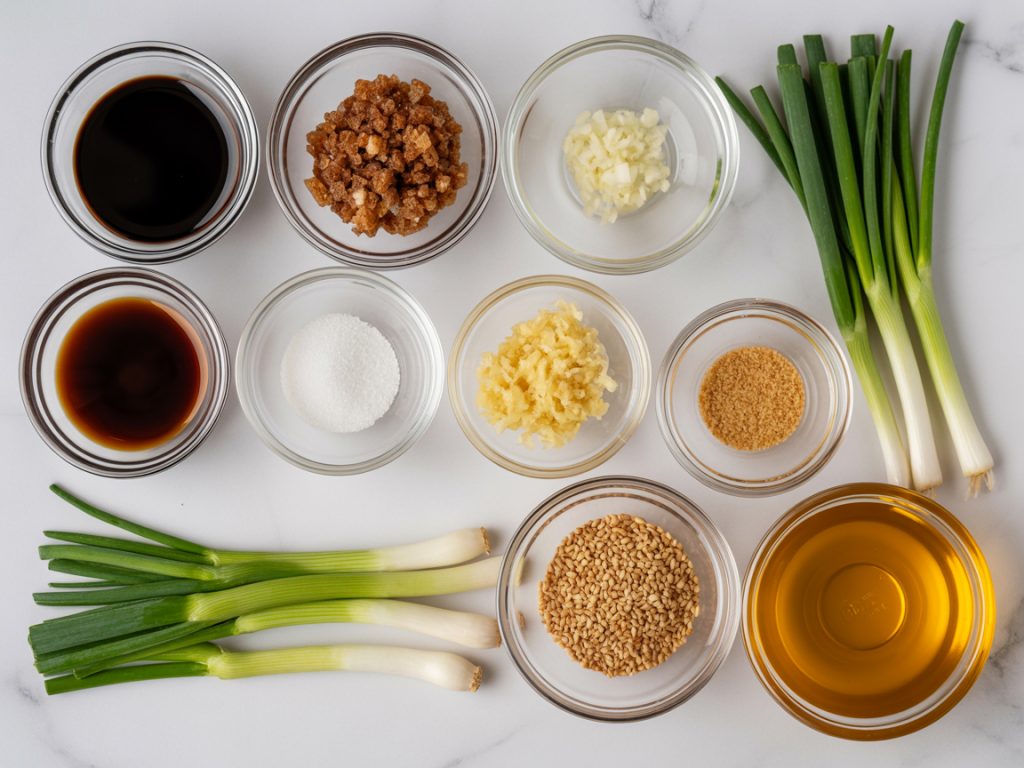
Part 2: Make the Korean Beef and Assemble Bowls
Brown the Beef: Heat a large skillet over medium-high heat. Add your ground beef and break it up with a wooden spoon or spatula. Cook for about 5-6 minutes, breaking it into small crumbles as it browns. You want it nicely browned with some crispy bits—that’s where the flavor is. If there’s a lot of excess fat (more than a couple tablespoons), drain most of it off, but leave a little for flavor.
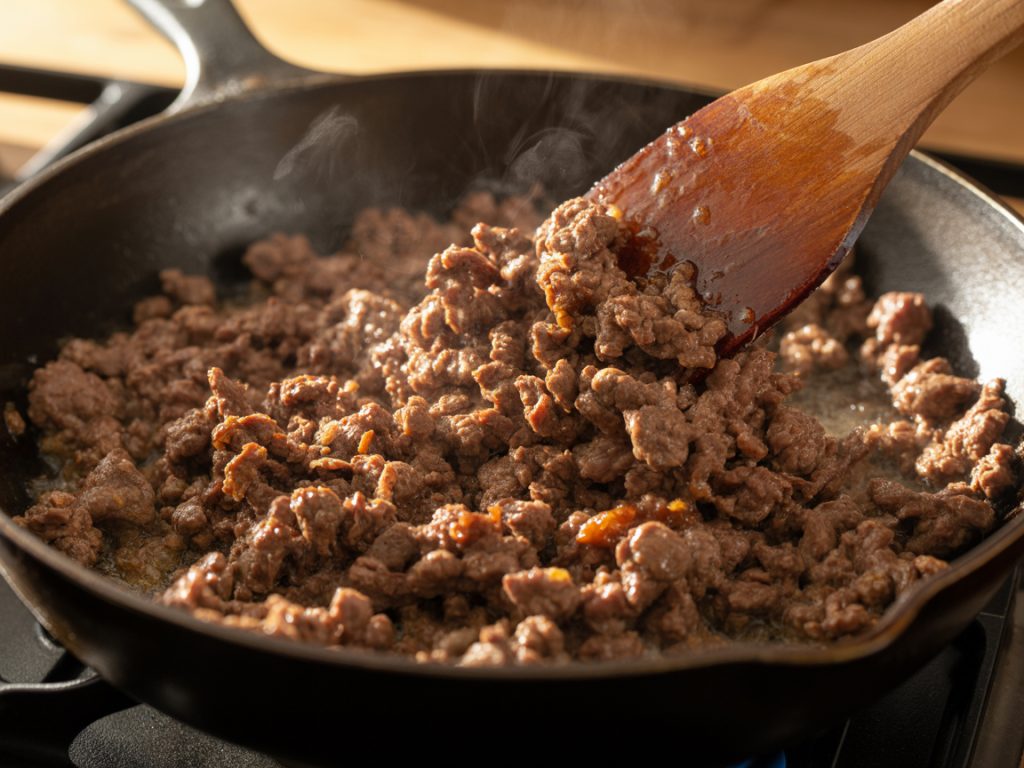
Add Aromatics: Once the beef is browned, add the minced garlic, grated ginger, and the white parts of the green onions. Stir everything together and cook for about 30-60 seconds until incredibly fragrant. Your kitchen is going to smell amazing right about now. Don’t let the garlic burn—if your heat is too high, reduce it slightly.
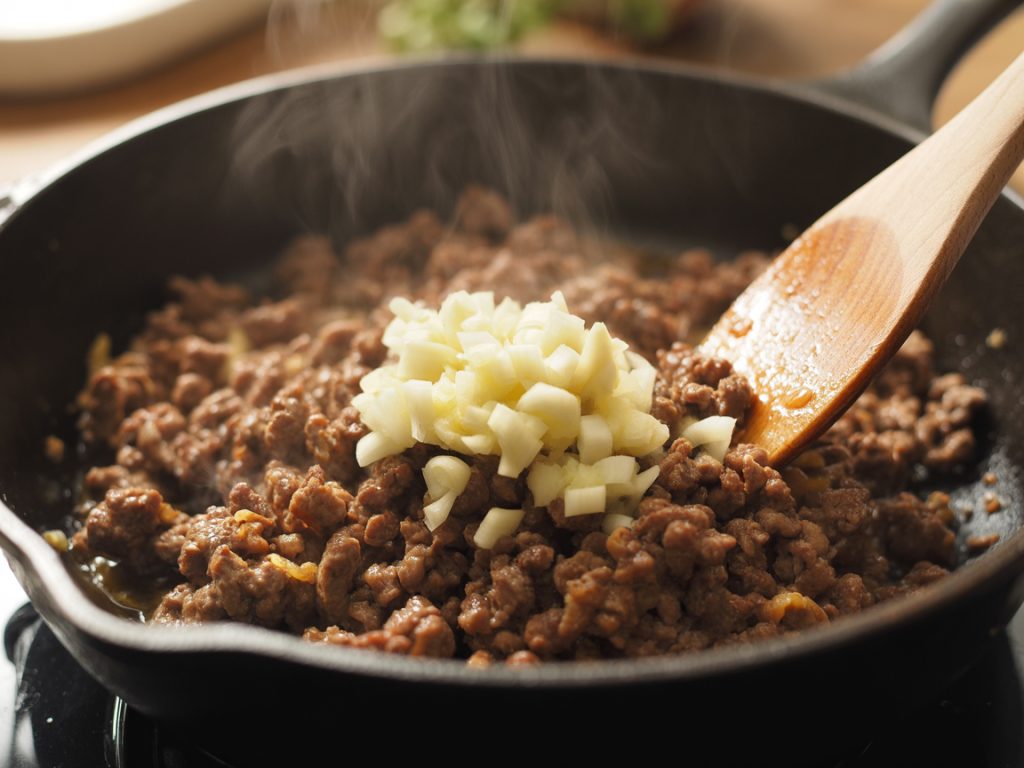
Make the Sauce: Pour in the soy sauce, brown sugar, and sesame oil. Stir everything together until the sugar dissolves and the sauce coats all the beef.
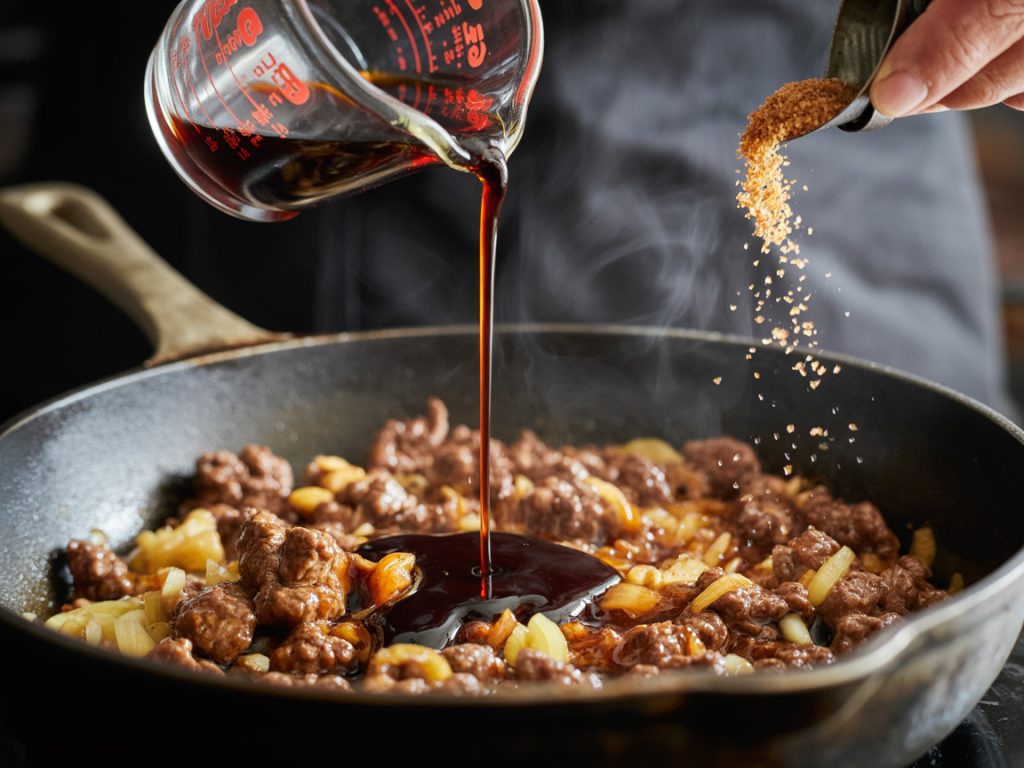
Let it simmer for 2-3 minutes, stirring occasionally. The sauce will thicken slightly and become glossy, clinging to every piece of beef. If you’re adding red pepper flakes or gochugaru, toss them in now. Taste and adjust—want it sweeter? Add a touch more sugar. Want it saltier? A splash more soy sauce.
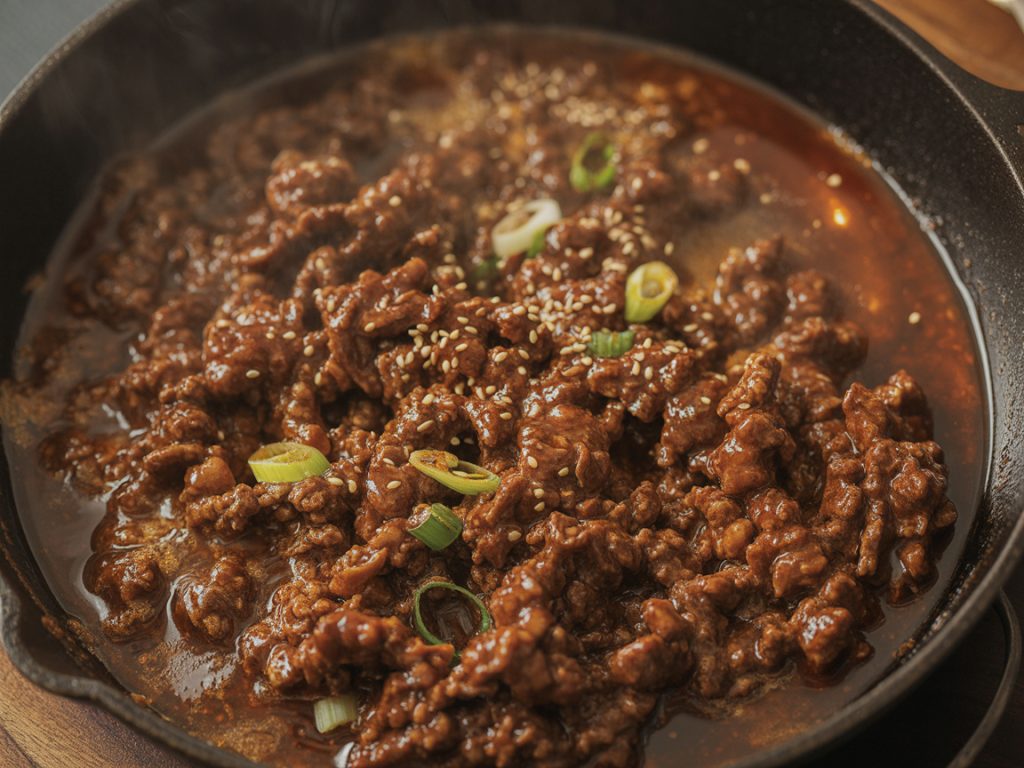
Assemble the Bowls: Divide your cooked rice among four bowls. Spoon the Korean ground beef mixture generously over the rice, making sure everyone gets plenty of that delicious sauce. Sprinkle with sesame seeds and the green parts of the sliced green onions. Add any additional toppings you’re using—shredded carrots, cucumber slices, kimchi, a fried egg, whatever sounds good.
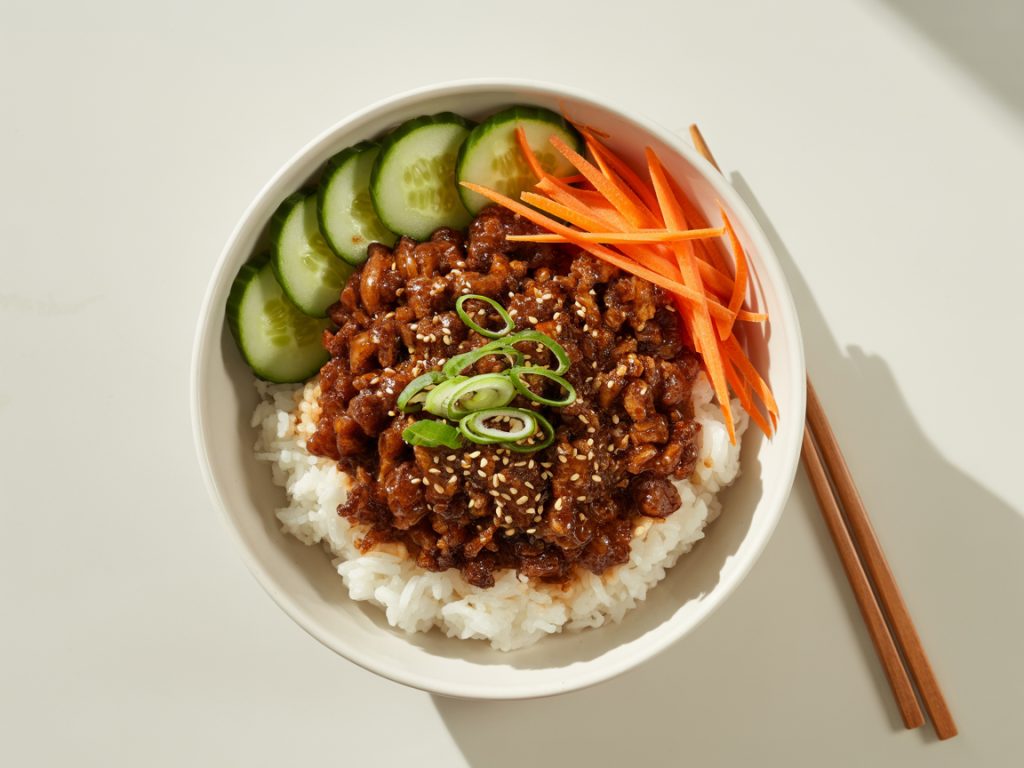
Serve Hot: These bowls are best enjoyed immediately while the beef is hot and the rice is fluffy. Pass around extra soy sauce, sriracha, or gochujang for anyone who wants to customize their heat level. Don’t forget to mix everything together before eating—you want that sauce distributed throughout every bite.
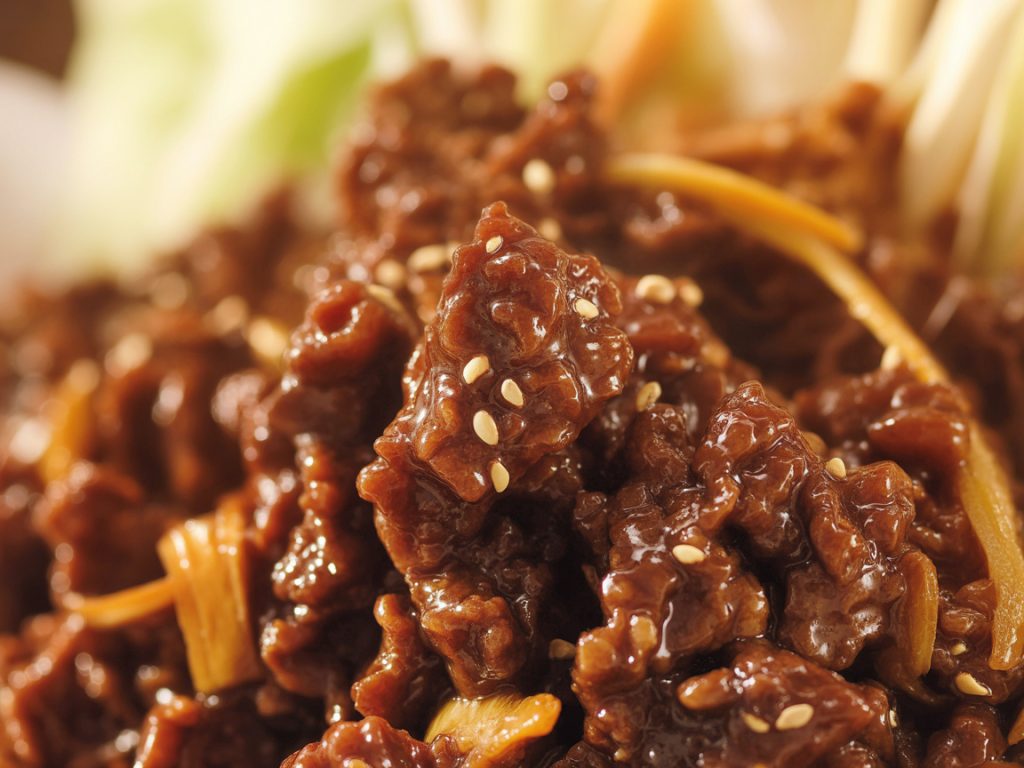
Serving Suggestions
These Korean ground beef bowls are incredibly versatile and can be customized a million different ways. Here are some of my favorite variations and serving ideas:
Classic Korean Style: Serve over white rice with kimchi on the side, sliced cucumbers, shredded carrots, and a fried egg on top. The runny yolk mixes with the sauce and creates this creamy, rich addition that’s absolutely incredible.
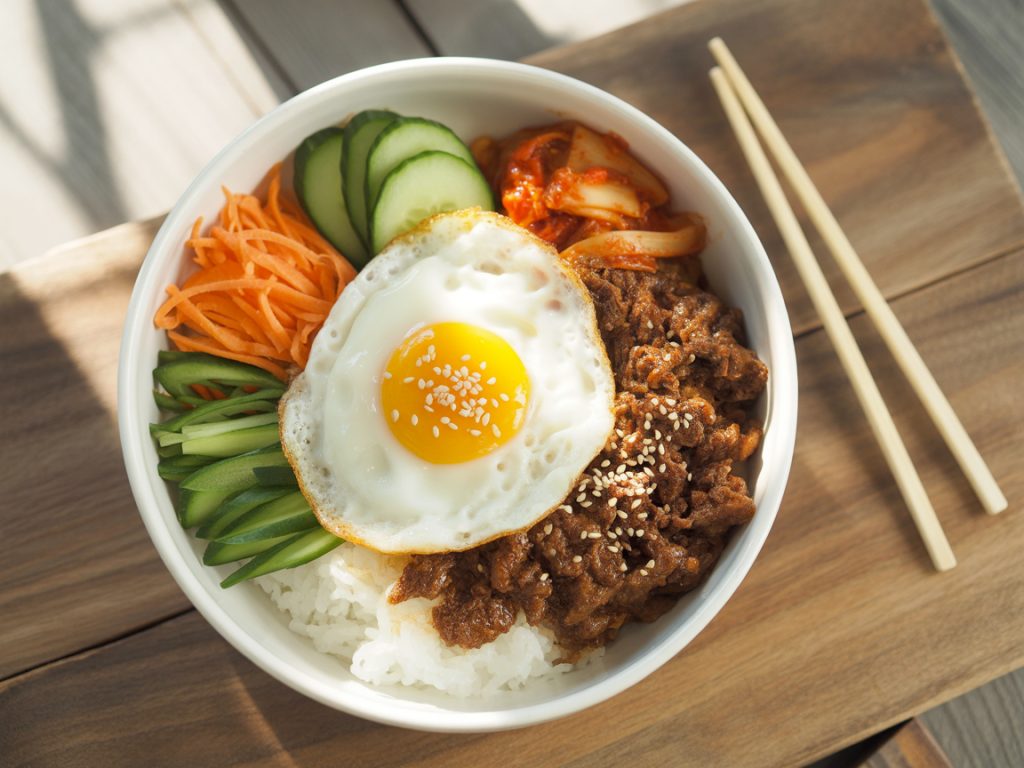
Loaded Veggie Bowl: Add steamed or roasted broccoli, snap peas, edamame, and shredded cabbage to bulk up the nutrition and add crunch. This turns it into a complete one-bowl meal with tons of vegetables.
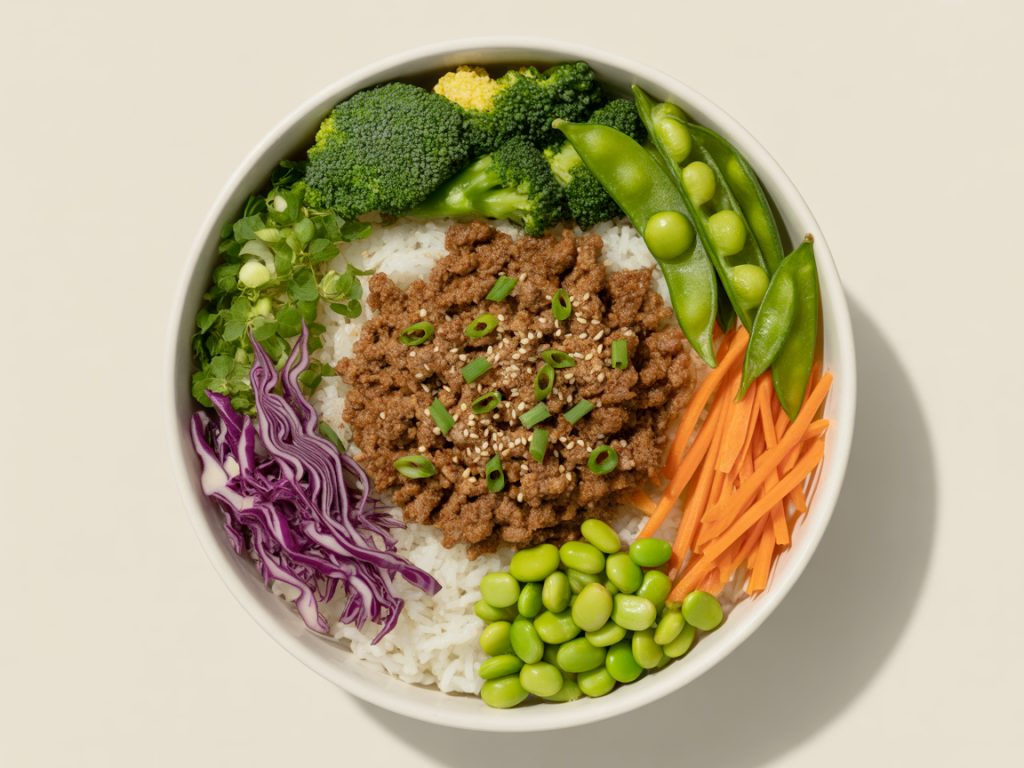
Low-Carb/Keto Version: Skip the rice and serve the beef over cauliflower rice or zucchini noodles. You still get all that amazing flavor without the carbs. Reduce or eliminate the sugar to make it fully keto-friendly.
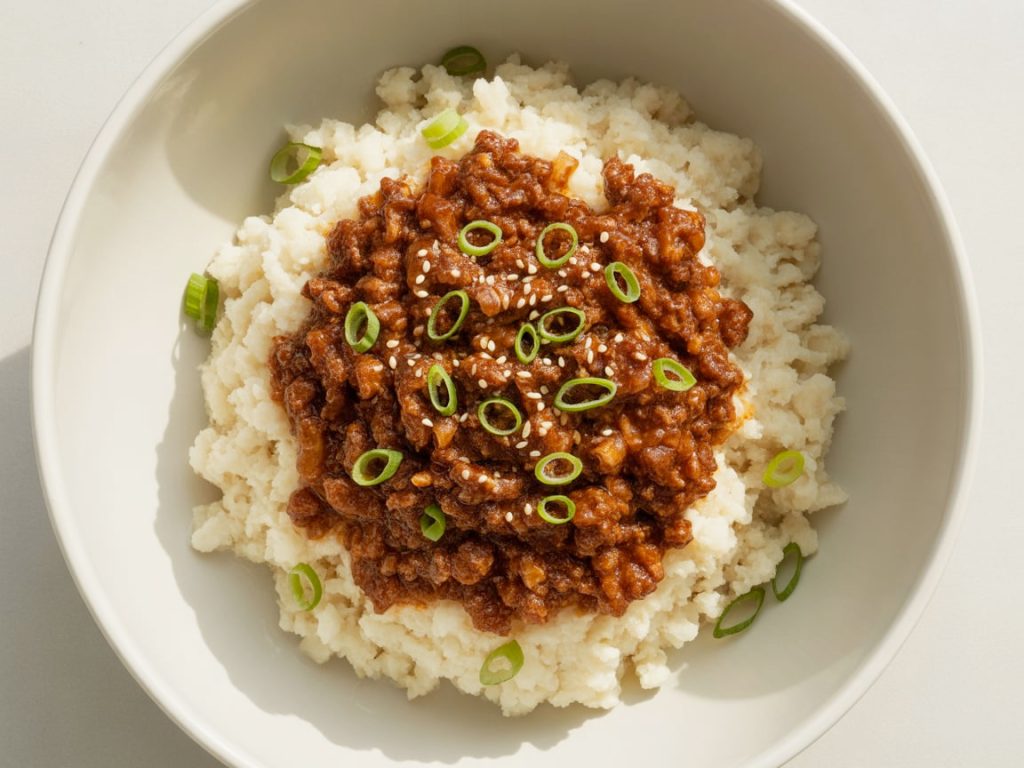
Lettuce Wraps: Instead of rice bowls, serve the Korean beef in crisp lettuce cups (butter lettuce or romaine work great) with pickled vegetables and a drizzle of spicy mayo. It’s lighter and fun to eat.
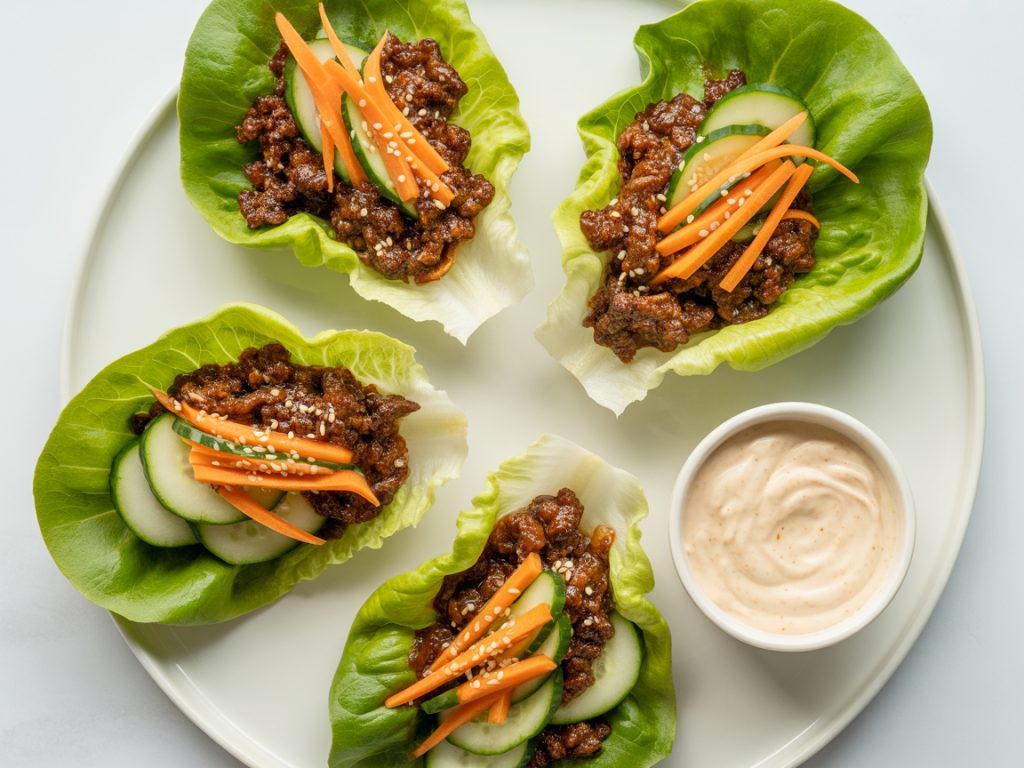
Bibimbap Style: Arrange the beef, rice, and various vegetables (spinach, bean sprouts, mushrooms, carrots) in sections in a large bowl. Top with a fried egg and a dollop of gochujang. Mix everything together before eating for that authentic bibimbap experience.
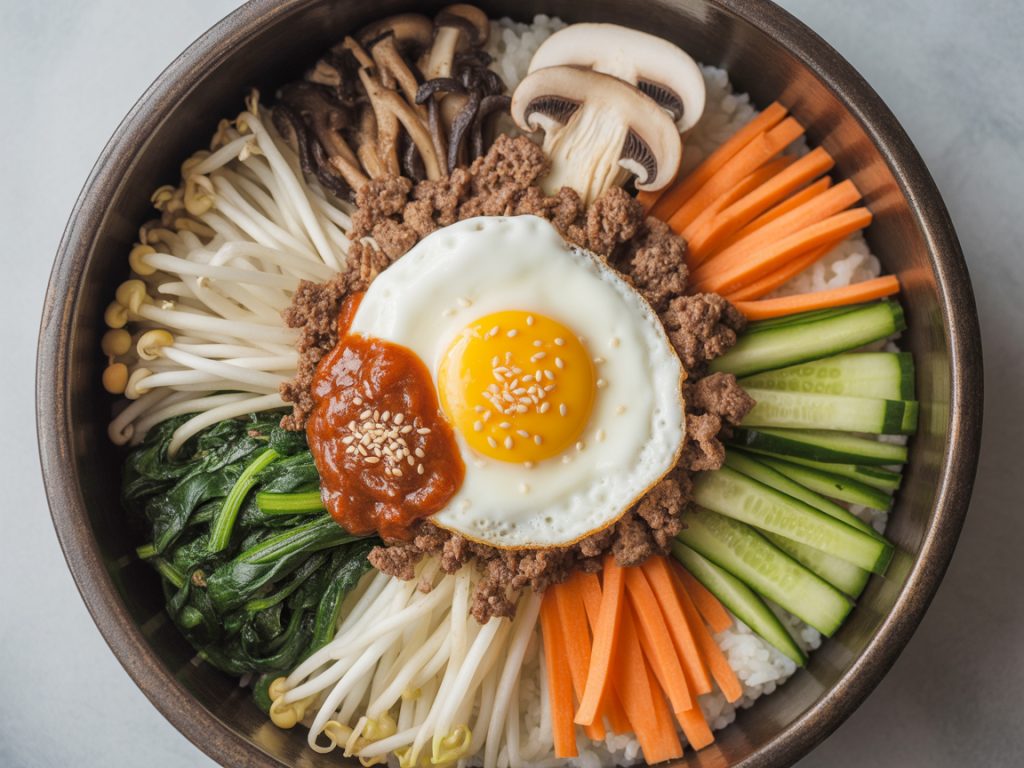
Meal Prep Bowls: Portion the beef and rice into containers with separate compartments for fresh veggies, kimchi, and sesame seeds. Store toppings separately to keep everything fresh throughout the week.
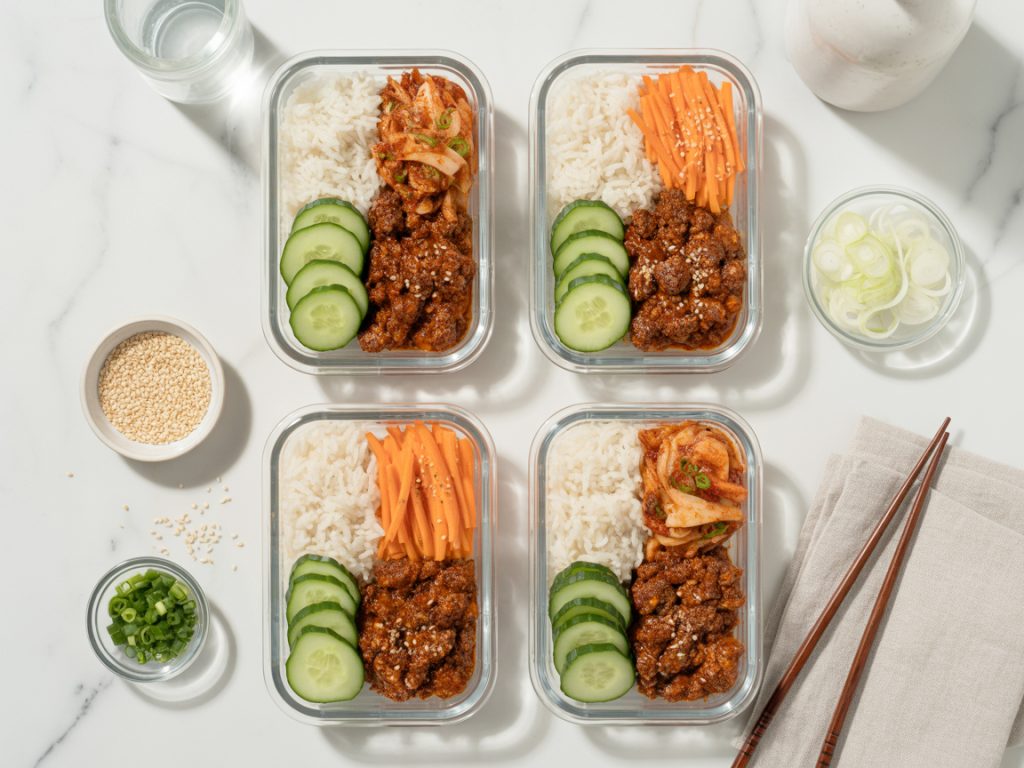
Burrito Bowl Fusion: Go Tex-Mex fusion with the Korean beef served over rice with black beans, corn, salsa, sour cream, and avocado. It sounds weird but trust me, it works.
Closing
These Korean Ground Beef and Rice Bowls have earned their spot as one of my most-made recipes, and for good reason. They’re fast, they’re flavorful, they’re budget-friendly, and they make everyone at the table happy. That sweet-savory-garlicky sauce is seriously addictive, and I love that you can customize these bowls to fit whatever you’re craving or whatever you have in the fridge.
The beauty of this recipe is its simplicity. You’re not spending hours in the kitchen or hunting down weird ingredients. You’re taking basic ground beef and transforming it into something that tastes like it came from a Korean restaurant, all in about fifteen minutes. That’s the kind of cooking magic that makes weeknight dinners actually enjoyable instead of stressful.
Whether you’re making this for meal prep, throwing together a quick weeknight dinner, or looking for something new to add to your regular rotation, these Korean beef bowls deliver every single time. Make a batch this week and I guarantee you’ll be adding it to your regular meal plan. It’s just that good.
Happy cooking, and enjoy every delicious, garlicky bite! 🙂
Korean Ground Beef and Rice Bowls: A 15-Minute Flavor Bomb
Description
Quick and flavorful Korean-inspired ground beef cooked in a sweet and savory sauce with garlic, ginger, and sesame. Served over rice with fresh veggies for a satisfying bowl that's ready in minutes.
Ingredients
Instructions
-
Cook rice according to package directions or use leftover rice. You'll need about 3 cups cooked rice total.
-
Brown the ground beef in a large skillet over medium-high heat for 5-6 minutes, breaking it into small crumbles. Drain excess fat if needed, leaving about 1-2 tablespoons.
-
Add garlic, ginger, and white parts of green onions to the beef. Cook for 30-60 seconds until fragrant, stirring constantly.
-
Add soy sauce, brown sugar, and sesame oil to the skillet. Stir well until sugar dissolves and sauce coats the beef. Add red pepper flakes if using.
-
Simmer for 2-3 minutes, stirring occasionally, until sauce thickens slightly and becomes glossy.
-
Divide rice among four bowls. Top generously with the Korean beef mixture.
-
Garnish with sesame seeds and green parts of sliced green onions. Add optional toppings as desired.
-
Serve immediately while hot. Mix everything together before eating to distribute the sauce throughout.
Note
Ground Meat Options: Ground turkey, chicken, or pork work equally well. Adjust cooking time as needed.
Make it Gluten-Free: Use tamari or coconut aminos instead of regular soy sauce.
Storage: Store beef and rice separately in airtight containers in the refrigerator for up to 4 days. The beef mixture freezes well for up to 3 months.
Reheating: Microwave individual portions for 1-2 minutes until heated through, or reheat on the stovetop with a splash of water.
Spice Level: Start with less red pepper flakes if unsure about heat tolerance. You can always add more or serve hot sauce on the side.

